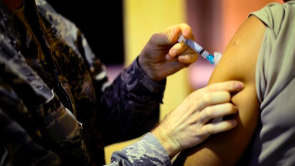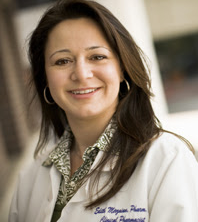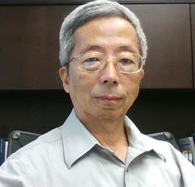Smart choices: The flu shot and vaccinations
 Flu season is underway, California Gov. Jerry Brown declared a state of emergency this month due to a hepatitis A outbreak that may last years and the kids are back in school — a reminder for everyone to stay up-to-date with their vaccinations.
Flu season is underway, California Gov. Jerry Brown declared a state of emergency this month due to a hepatitis A outbreak that may last years and the kids are back in school — a reminder for everyone to stay up-to-date with their vaccinations.
Although many people are averse to receiving the flu shot and vaccines in general, USC experts say vaccines can be the best way to prevent the spread of emergent outbreaks like hepatitis A and are a wise preventative health move. The combined measles, mumps and rubella vaccine, for example, has pretty much eliminated measles from the Americas and Finland, according to the World Health Organization.
Contact: Zen Vuong, (213) 300-1381 or zvuong@usc.edu
The flu vaccine cannot cause the flu
 “The influenza vaccine is a highly effective method of preventing severe illness or complications resulting from the flu. The CDC recommends that everyone six months of age and older receive the flu vaccine every year.
“The influenza vaccine is a highly effective method of preventing severe illness or complications resulting from the flu. The CDC recommends that everyone six months of age and older receive the flu vaccine every year.
“The flu vaccine is an inactivated vaccine that cannot cause the flu. Once a person receives the flu vaccine, it may take up to two weeks to be fully protected. Side effects may include mild flu-like symptoms that last for two to three days.
“Since there are over a hundred subtypes of the flu virus, it is still possible to get the flu even though you have received a flu vaccine. However, the vaccine provides a great deal of immunity so that even if you do get the flu, it will not last as long and will be less severe than if you didn’t get the vaccine.
“Everyone is susceptible to the flu; however, certain people have a higher risk of developing very serious complications. These vulnerable populations include adults older than 65 years old, children, pregnant women and anyone with chronic conditions such as diabetes, asthma or cardiovascular problems.
“Influenza is a highly contagious respiratory virus that affects millions of people every year, leads to hospitalizations and tens of thousands of deaths every year. Flu symptoms include headache, fever, chills, body aches, fatigue, sore throat and cough.”
Edith Mirzaian can discuss the flu vaccine, travel-related medications and vaccinations, and mosquito-borne illnesses, such as the Zika virus, yellow fever, West Nile, dengue fever and chikungunya. Mirzaian is an associate professor of clinical pharmacy at the USC School of Pharmacy.
Contact: emirzakh@usc.edu or (323) 442‑1345
The hepatitis A vaccine is effective
 “The hepatitis A vaccine is available and effective. People who plan to travel to hepatitis A virus endemic areas should obtain this vaccine to protect themselves from this viral infection because hepatitis A is a highly contagious disease. Symptoms include fever, fatigue, loss of appetite, nausea and jaundice.
“The hepatitis A vaccine is available and effective. People who plan to travel to hepatitis A virus endemic areas should obtain this vaccine to protect themselves from this viral infection because hepatitis A is a highly contagious disease. Symptoms include fever, fatigue, loss of appetite, nausea and jaundice.
“People can contract the hepatitis A virus through casual contact with another person who is infected, by eating contaminated food or by drinking contaminated water. Washing hands with soap before eating and maintaining good hygiene practices will minimize the risk for contracting hepatitis A.”
James Ou can discuss hepatitis viruses, mosquito-borne illnesses such as the Zika virus and liver cancer. He is a professor of molecular microbiology and immunology at the Keck School of Medicine of USC.
Contact: jamesou@hsc.usc.edu or (323) 442-1720
Teens should get the HPV vaccine
 “Because the recommended age for the human papillomavirus (HPV) vaccine is between 11-12 years old, parents should speak to their child’s pediatrician about taking this important health precaution. The HPV vaccination is a safe, effective way to prevent cancers that occur in both men and women. With this vaccine, we have the ability to eradicate cervical cancer and other cancers, and our advocacy is crucial for increasing vaccination rates nationwide.”
“Because the recommended age for the human papillomavirus (HPV) vaccine is between 11-12 years old, parents should speak to their child’s pediatrician about taking this important health precaution. The HPV vaccination is a safe, effective way to prevent cancers that occur in both men and women. With this vaccine, we have the ability to eradicate cervical cancer and other cancers, and our advocacy is crucial for increasing vaccination rates nationwide.”
Stephen Gruber is a professor of medicine and preventive medicine at the Keck School of Medicine of USC. As an oncologist, he can discuss the genetic epidemiology of cancer and cancer prevention.
Contact: Mary Dacuma at (323) 865-7839 or dacuma@usc.edu
Developing an Alzheimer’s disease vaccine
 “If we are able to show that a vaccine or oral medication is effective at delaying Alzheimer’s among people at higher risk, then this would strongly imply that we are on the right track for developing treatments. If we can delay the onset of Alzheimer’s by five years, for example, the incidence of the illness would drop by half. It would also give individuals five more years without symptoms of the illness.
“If we are able to show that a vaccine or oral medication is effective at delaying Alzheimer’s among people at higher risk, then this would strongly imply that we are on the right track for developing treatments. If we can delay the onset of Alzheimer’s by five years, for example, the incidence of the illness would drop by half. It would also give individuals five more years without symptoms of the illness.
“One of the challenges in developing new medications for Alzheimer’s is that researchers tend to test medications on people with more advanced Alzheimer’s, and the medications are simply not proving to be effective. By intervening 10 to 12 years before Alzheimer’s manifests, we may be able to stop it before it begins or delay the symptoms.”
Lon Schneider is director of the California Alzheimer’s Disease Center at USC, director of the clinical core of the Alzheimer Disease Research Center and a professor of psychiatry and the behavioral sciences at the Keck School of Medicine of USC.
Contact: Cynthia Smith at (917) 405-0060 or Cynthia.Smith@med.usc.edu
